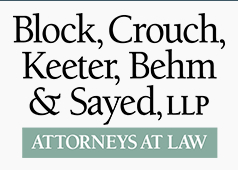Community Association Law
Our firm regularly represents condominium and homeowners’ associations in North Carolina, as well as the individuals that live in them.
Our lawyers have represented associations or their residents before the appellate courts in North Carolina in cases of great import to this area of the law.
Our services in this area included drafting and amendment of covenants, bylaws and other governing documents, collection of assessments and fines, filing and foreclosing upon assessment liens, architectural enforcement disputes, disputes with developers, builders, and building product manufacturers, and advising boards of directors, property managers, and residents on all aspects of operations of these associations.
We have experience with both self-managed associations as well as property management companies. Our team of lawyers in this practice group have diverse skills, speak frequently on the subject at seminars, and are experienced in guiding communities or their residents through legal transactions and various disputes that arise regularly in operation of these communities.
Our Attorneys Who Focus in this Area:
Jeffrey P. Keeter • Christopher K. Behm • Colin J. Tarrant • Brody O’Neal
Community Associations Law FAQs
Am I required to be a member of the property owner’s association for the community my property is located?
If the property you purchase is located in a community governed by a mandatory owner’s association, then you are obligated to be a dues-paying member of the association.
Can my community association do this?
The powers of a community association are prescribed in its governing documents, including but not limited to, its articles of incorporation, declarations, covenants, bylaws, and/or rules and regulations. Community associations are also subject to certain state laws depending on the type of community association. The applicable state laws include the NC Planned Community Act (N.C.G.S. Chapter 47F), NC Condominium Act (N.C.G.S. Chapter 47C), NC Unit Ownership Act (N.C.G.S. Chapter 47A), and/or NC Nonprofit Corporation Act (N.C.G.S. Chapter 55A).
Can my homeowners’ association require assessments?
This depends on the association type and the language of the governing documents of the homeowners’ association. However, most homeowners’ associations may assess mandatory fees for maintenance of common areas maintained by the association on behalf of its members.
What happens if I do not pay a mandatory assessment to my homeowners’ association?
A homeowners’ association may place a lien on an owner’s property for failure to pay an assessment. If the owner refuses to pay the assessment following notice and lien, the homeowners’ association may foreclose upon the lien and/or sue for recovery for collection of the money owed to the association, and in many cases for the costs and expenses associated with the collection action, including legal fees.
